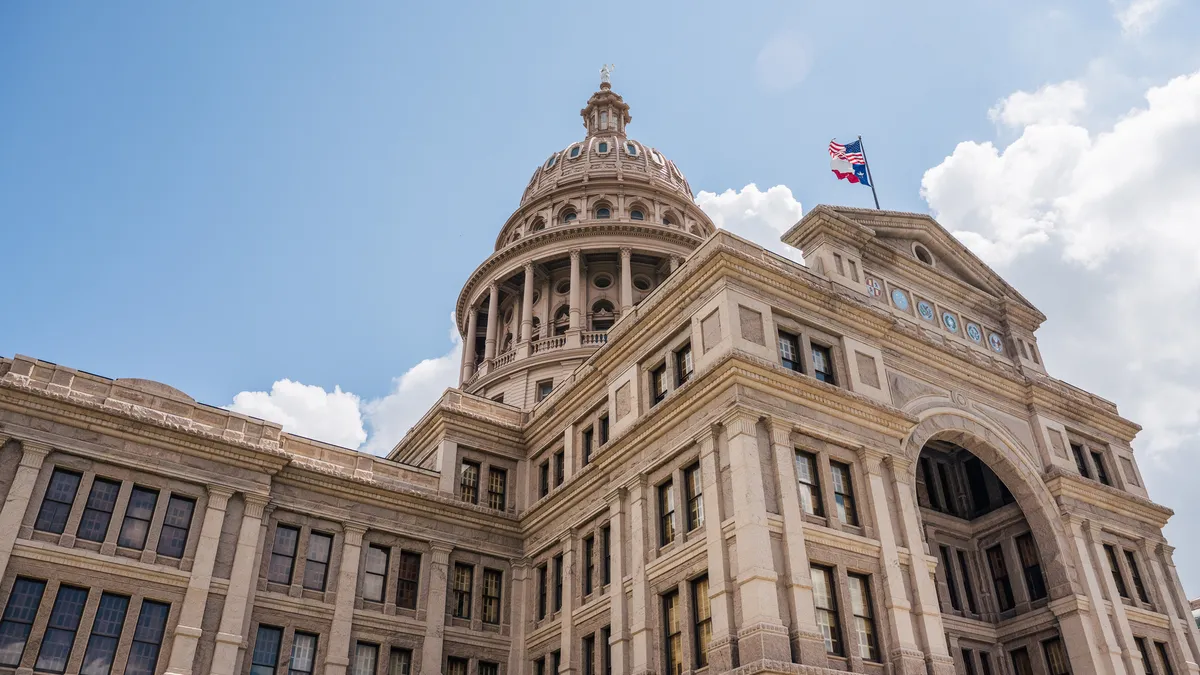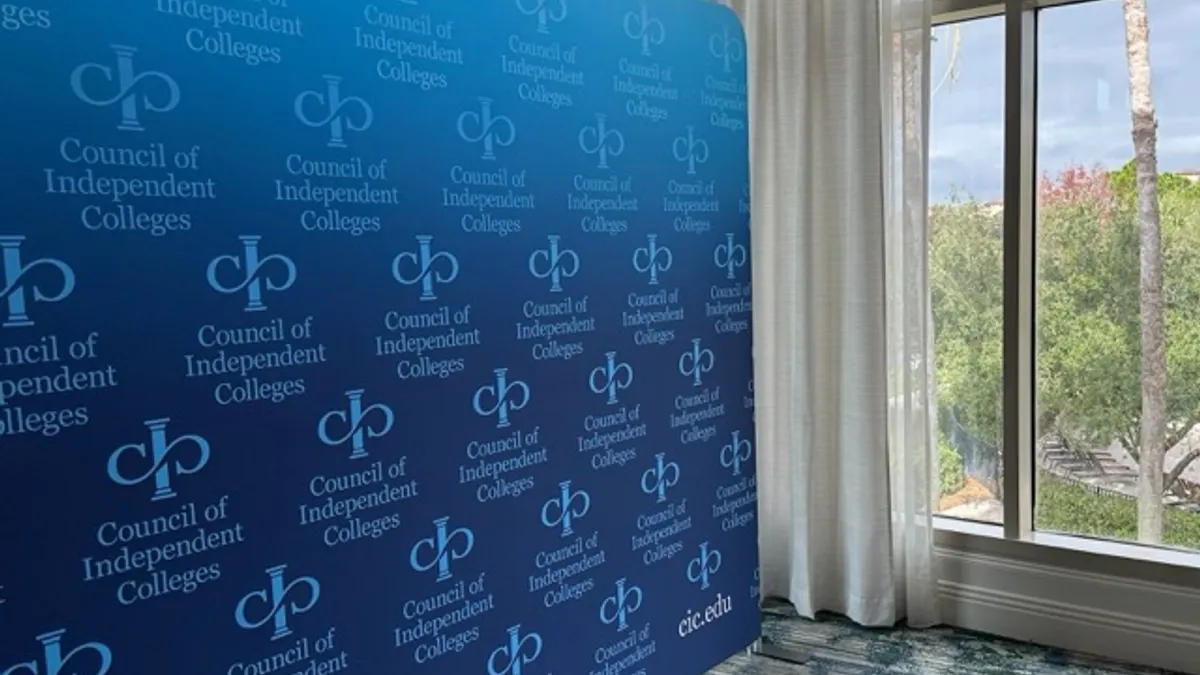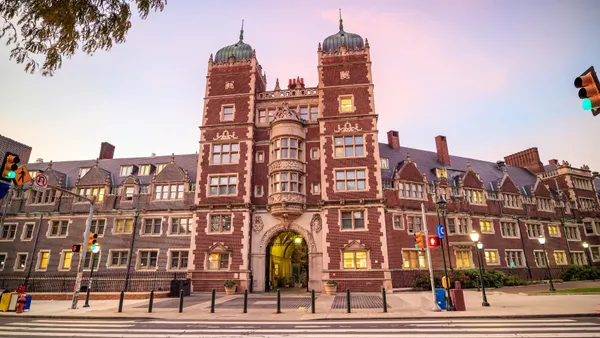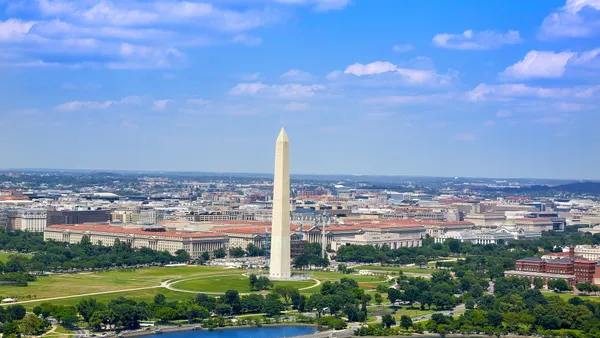Dive Brief:
- Texas policymakers on Friday launched state House and Senate select committees tasked with issuing reports about “bias, discourse, and freedom of speech” on the state’s college campuses. Each chamber's panel includes five Republican and two Democratic legislators.
- Lt. Gov. Dan Patrick linked the new committees to the Sept. 10 murder of right-wing commentator and political organizer Charlie Kirk. “He was assassinated for simply expressing his First Amendment rights,” Patrick said in a Sept. 12 statement. “Those who cheered his murder are also cheering for the death of America.”
- Texas has garnered national attention in recent weeks over high-profile firings of college faculty members over their teaching and politics, as well as a new state law explicitly banning all First Amendment-protected activities on public college campuses at certain times.
Dive Insight:
Kirk’s murder on Utah Valley University's campus has intensified an already fraught and tangled debate around free speech at colleges. Prosecutors on Tuesday charged a 22-year-old man with aggravated murder and began releasing some details about the suspect.
State Rep. Dustin Burrows, speaker of the Texas House, said in a statement Friday that “the public celebration of his murder by some in higher education” is “appalling and reveals a deeper, systemic problem worth examining.”
Texas' new committees, the House and Senate Select Committees on Civil Discourse & Freedom of Speech in Higher Education, represent an intensifying scrutiny of speech on the state's campuses.
A press release out of Patrick’s office said the committees' work would “help ensure Texas remains a national leader in protecting First Amendment rights.”
But national free speech groups have recently raised alarms about suppression of speech and expression in the state.
The Foundation for Individual Rights and Expression is suing the University of Texas System system over a new state law directing public colleges to prohibit students’ expressive activities — defined as those protected by the First Amendment and its counterpart in the state constitution — on campuses from 10 p.m. to 8 a.m daily.
FIRE earlier this month called the law “blatantly unconstitutional” and said it could inhibit student journalism, religious expression, discussing the wrong topics or even wearing certain T-shirts in that 10-hour time frame.
Last week, Texas A&M University fired a children’s literature professor and removed a department head and dean from their administrative positions after a state representative shared a video of the instructor teaching about gender identity.
Meanwhile, last Wednesday Texas State University fired a tenured history professor who spoke at an online socialist forum about organizing working classes against capitalism and alluded vaguely to a hypothetical “overthrow” of the U.S. without elaborating.
In a statement last week, Texas State President Kelly Damphousse said the professor’s actions “amounted to serious professional and personal misconduct” and alleged that he had incited violence. However, Damphousse didn’t provide details about what the professor said or go deeper into his incitement allegations.
An attorney for the professor described his ouster as “politically motivated discrimination” and said he would be taking legal action, according to the Texas Tribune.
Meanwhile, as many from across the political spectrum have pled for civility and an end to political violence in the wake of Kirk’s death, several faculty members across the country have been fired for negative comments and social media posts about Kirk that administrators deemed inappropriate.
Clemson University in South Carolina fired two faculty members this week over their posts. Prior to the terminations, some politicians called for the institution to be defunded or for students to request refunds, according to Greenville News.
Austin Peay State University, a public institution in Tennessee, fired a theater professor last week for social media comments that university President Mike Licari described to local news outlets as “insensitive, disrespectful and interpreted by many as propagating justification for unlawful death.”
At both universities, leaders did not quote the comments or specify the parts they deemed inappropriate or in violation of their institution's policies.
In Texas, a student at Texas Tech University was arrested and expelled for taunting mourners at a Charlie Kirk memorial and allegedly hitting another student on the head, according to media reports. In a statement, the university said that “any behavior that denigrates victims of violence is reprehensible, has no place on our campus, and does not align with our values."














